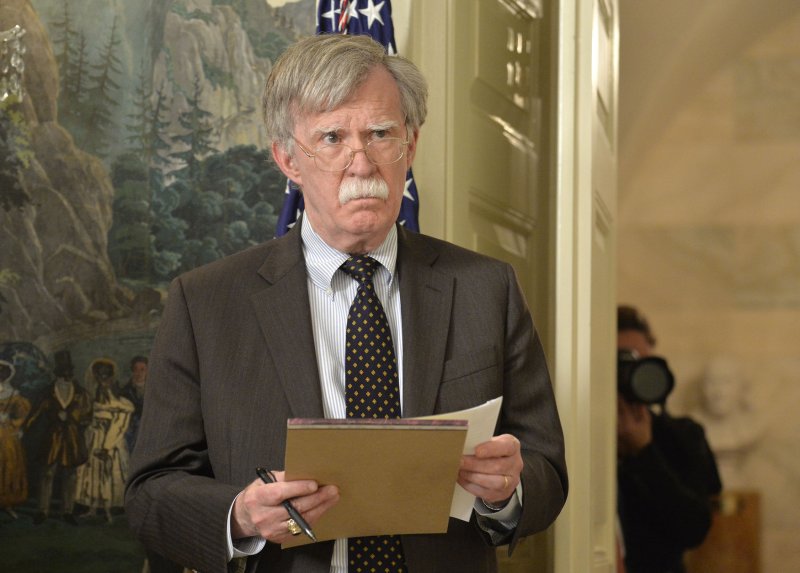National security adviser John Bolton said Sunday the United States is focused on total denuclearization in North Korea and Iran, including the removal of nonnuclear weapons. File photo by Mike Theiler/UPI |
License Photo
May 13 (UPI) -- White House national security adviser John Bolton said Sunday the administration has placed a priority on achieving full denuclearization in North Korea and Iran, including the removal of non-nuclear weapons.
Appearing on CNN's State of the Union Sunday, Bolton said the United States is pursuing a standard of "complete, verifiable and irreversible denuclearization" heading into President Donald Trump's summit with North Korean leader Kim Jong Un next month.
"On the denuclearization side of the program, that means all aspects of their nuclear program," he said. "Clearly, the ballistic missiles program, as with Iran, with the intention of being a delivery system for nuclear weapons -- that's gotta go. I think we need to look at their chemical and biological weapons programs as well."
He added that North Korea's prospects are "unbelievably strong if they'll commit to denuclearization."
"I think what the prospect for North Korea is to become a normal nation, to behave and interact with the rest of the world the way that South Korea does," Bolton said.
Bolton also discussed Trump's decision to back out of the Iran nuclear deal, suggesting the agreement never forced Iran to make a strategic to give up nuclear weapons.
"I think it was testing the limits of the deal's provisions, exceeding them in some cases," he said. "Its ballistic missile program, which continued essentially unchecked, was proof that what they were seeking was delivery systems for the nuclear weapons."
He went on to say the deal, which Trump referred to as "defective at its core," contained fundamental deficiencies that wouldn't prevent Iran from obtaining nuclear weapons.
"Quite the contrary, it provided cover for Iran to continue its efforts. And if it continued, it would have given Iran extraordinary economic benefits without any guarantees of Iranian performance," Bolton said.
Bolton said it is possible some European countries may face secondary sanctions for countries that conduct business with Iran after the U.S. decision to withdraw from the deal, but expressed optimism that most will support the decision.
"I think the Europeans will see that's in their interest ultimately to go along with this," he said.















